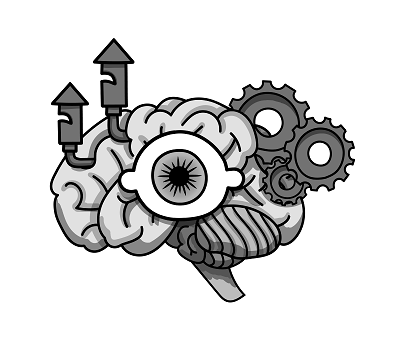Good read on the attainment of perfection and accepting our flaws.

I prefer to not think about it as stupidity, but vulnerability to manipulation and exploitation.
People are “stupid” because they are misinformed be it through intentional malice, accident or general incompetence.
Identifying people as stupid doesn’t help anything. What needs to be identified is why they are stupid; who has misinformed them, to what end and how can it be combatted.
“If you call someone stupid, there you’ve called them a name. You haven’t actually done anything.” - Zen and the Art of Motorcycle Maintenance
I think you’re conflating ignorance and stupidity, from my perspective on this subject at least. What you’re describing (to me) is ignorance, while stupidity is somebody rejecting information and choosing to remain ignorant on the subject.

I don’t think there’s really a difference.
People outright reject ideas because they are in congruent with what they already believe it isn’t an inability to change their mind just an impasse.
There’s also an element of subjectivity; for example I think that Jordan Peterson is stupid, but there are plenty of people who disagree with me. I believe his stupid because his ideas are in congruent with my established perspective. Jordan Peterson would consider me stupid for being unwilling to adopt his perspective, by your definition.
I don’t think there’s really a difference.
Then we’ll never agree on this subject because I believe there is a great deal of difference between stupidity and ignorance.
There’s also an element of subjectivity; for example I think that Jordan Peterson is stupid, but there are plenty of people who disagree with me. I believe his stupid because his ideas are in congruent with my established perspective. Jordan Peterson would consider me stupid for being unwilling to adopt his perspective, by your definition.
Well yeah, just like morals/ethics what is and isn’t stupid is going to be entirely subjective to the individual.

I’m happy to have my mind changed on the difference

IMO ignorance is chiefly a lack of knowledge. If you drop someone who has no knowledge of cars into a mechanics shop and tell them to fix a car, they’re going to be really incompetent and look bad compared to the mechanic. But, if they had car manuals to read and learned some mechanical engineering and watched the mechanic work and spent time tinkering with the engine, they could figure it out.
Stupidity is a failure of logic and self-reflection, like continuing to insist that obviously wrong things are true when presented with undeniable facts (“this isn’t a car at all, it’s a plane, nobody can fix planes, that’s why I’m failing!”) holding two ideas that are in opposition to each other and not acknowledging the dichotomy (“all car mechanics are really stupid but they make these cars so complicated that no reasonable person could ever figure it out”), flip-flopping back and forth between statements, blaming other people or things (“this is all Big Oil’s fault”) and generally not thinking things through.
Both might make equally terrible cars at first but ignorance is a lot more fixable and might not be the person’s fault (like if they grew up Amish and never saw a car’s engine before), while stupidity is more about refusing to learn or self-correct when given the option.

I just feel like that’s too subjective to be useful in anyway.
My uncle is a bishop and has a doctorate in theology for example. Is he stupid? There are numerous contradictions and denial of “facts” when it comes to such a perspective, but is it “stupidity”?
I’d also argue that facts change all the time and there are paradoxes that we haven’t been able to reconcile even now; is that stupidity?
I understand where you’re coming from. I just don’t feel like it’s a term that helps anyone.
It’s just used to deride a perspective that we ourselves don’t hold. It would be stupid to deny gravity, but it it’s also something we don’t really understand. Is it stupid to believe and accept without understanding?

There’s nuance to it, for sure. In the case of religion, I think it can be either or neither. If someone makes a bad faith-based choice because they’ve been raised in a cult, or they’re a kid who has been fed a lot of religious doctrine but doesn’t have any real world experience, or they live in a super religious community and only know scary lectures about atheists or people of other faiths, that’s ignorance. They don’t know any better and don’t have many avenues to fix that. If it’s something like Steve Jobs doing spiritual juice cleanses instead of getting cancer treatment despite having all the best medical resources and doctors in the world available, that’s stupidity. If it’s somebody who has a religious belief but doesn’t let that affect their decision-making detrimentally (they believe in miracles, but they’ll still go to the doctor for treatment when they’re sick) then they’re not stupid or ignorant. They may not be totally right but that’s some other fallacy - being too optimistic? Rose colored glasses? - that’s less harsh than stupidity or ignorance.
Your question about believing without understanding is a good one. There are a lot of things people believe without total understanding or proof. I believe Canada exists even though I’ve never been there. I suppose the difference there is the possibility of learning and proving it, as well as common consensus - I could go to Canada, I can talk to Canadians, I can see that Canada competes in the Olympics and is labeled on a globe. There are lots of different ways to verify it, and if all of the maps in the world vanished overnight people would find Canada again. But if I believed in a new undiscovered continent named Lemmy then I’d have to insist on believing it’s there despite there being no Lemmy citizens, no flag, no presence on a map, and so on, which makes it a much sketchier thing to ‘believe’ in than Canada.

“Only two things are infinite, the universe and human stupidity, and I’m not sure about the former.” - Albert Einstein

I came here explicitly to upvote whoever had written this. My gut reaction to the title was an emphatic and very certain “NO.”

It’s still such a wonderful quote and it’s absolutely true.

Looks around at the havoc caused by Brexit
shrugs

nods somberly

